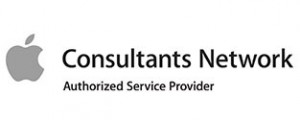Companies around the world are growing increasingly concerned that compromised employee credentials are resulting in damaging data breaches. A recent Cloud Security Alliance report has affirmed these suspicions. Digital security professionals across an array of industries were surveyed to determine the most common sources of data breaches. Compromised credentials turned out to be the top cause of business data theft. Those who responded to the survey also reported that compromised credentials will likely be the leading cause of data breaches across posterity.

Data Breaches Are Becoming More Common
Just under 20 percent of survey respondents report that their business experienced a data breach incident in the past. Of those afflicted, almost one-quarter of them report that the data breach resulted from compromised employee credentials. Survey responses turned even more negative when the questions turned toward what might be in store for the future. A whopping 65 percent of survey respondents stated that they believe there is a good chance their employer would suffer a future data breach as a result of stolen credentials.
Security Challenges and Possible Solutions
Survey respondents indicate that the most commonly used perimeter security tactic is antivirus software. All in all, 90 percent of respondents’ organizations used this anti-theft measure. Antivirus software was followed by e-mail spam filters and web application firewalls. Both of these security measures were used by over 80 percent of survey respondents’ employers. In terms of access controls for end users, a whopping 72 percent of survey respondents relied upon multi-factor authentication. The next most common access control for end users turned out to be SaaS and World Wide Web sign-on solutions. These access controls were used by 55 percent of survey respondents. Just over 50 percent of respondents reported that their employer relied upon sign-on solutions for enterprise applications.
Key Takeaways
Once all of the survey’s data is analyzed, it becomes abundantly clear that computer security systems tend to fail quite frequently as a result of stolen credentials. Compromised credentials can lead to the infiltration of even the most supposedly secure systems. The unfortunate truth is that businesses commonly fail in their attempts to limit access to in-house systems to pre-authorized users.
The flaw with credentials is that the vast majority of organizations use the same passwords year after year. Too many business owners, managers and administrators fail to choose complex passwords. Furthermore, most employees do not change their passwords on a regular basis unless prompted by system protocols. Some people actually print out their passwords and tape them to the bottom of their keyboard, mouse, monitor or other cubicle equipment. Some even go as far as using the same passwords over and over across various services. Others are even willing to share their login credentials with co-workers.
There is no longer any doubt as to whether passwords are appropriate for securing access to highly sensitive systems, network and data. Organizations should shift their focus to access control for improved organizational security. The implementation of a two-factor authentication process combined with single use passwords is a cost effective way of preventing inappropriate access to private data.
Secure Your Company’s Sensitive Information With the Assistance of our IT Gurus
Alary Clinitech is the trusted choice when it comes to staying ahead of the latest information technology tips, tricks and news. Contact us at (416) 291-7377 or send us an email at info@clinitech.ca for more information.


